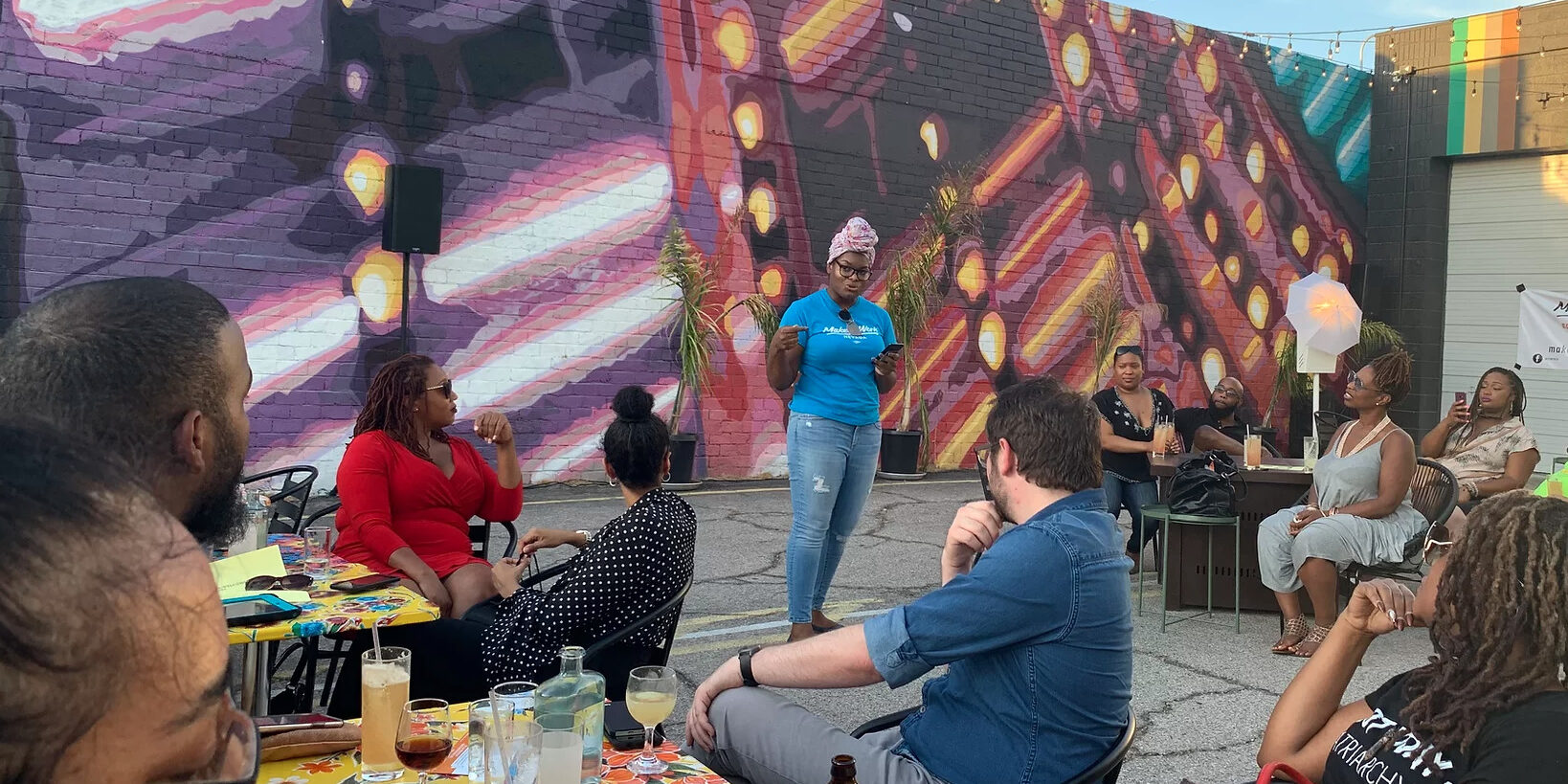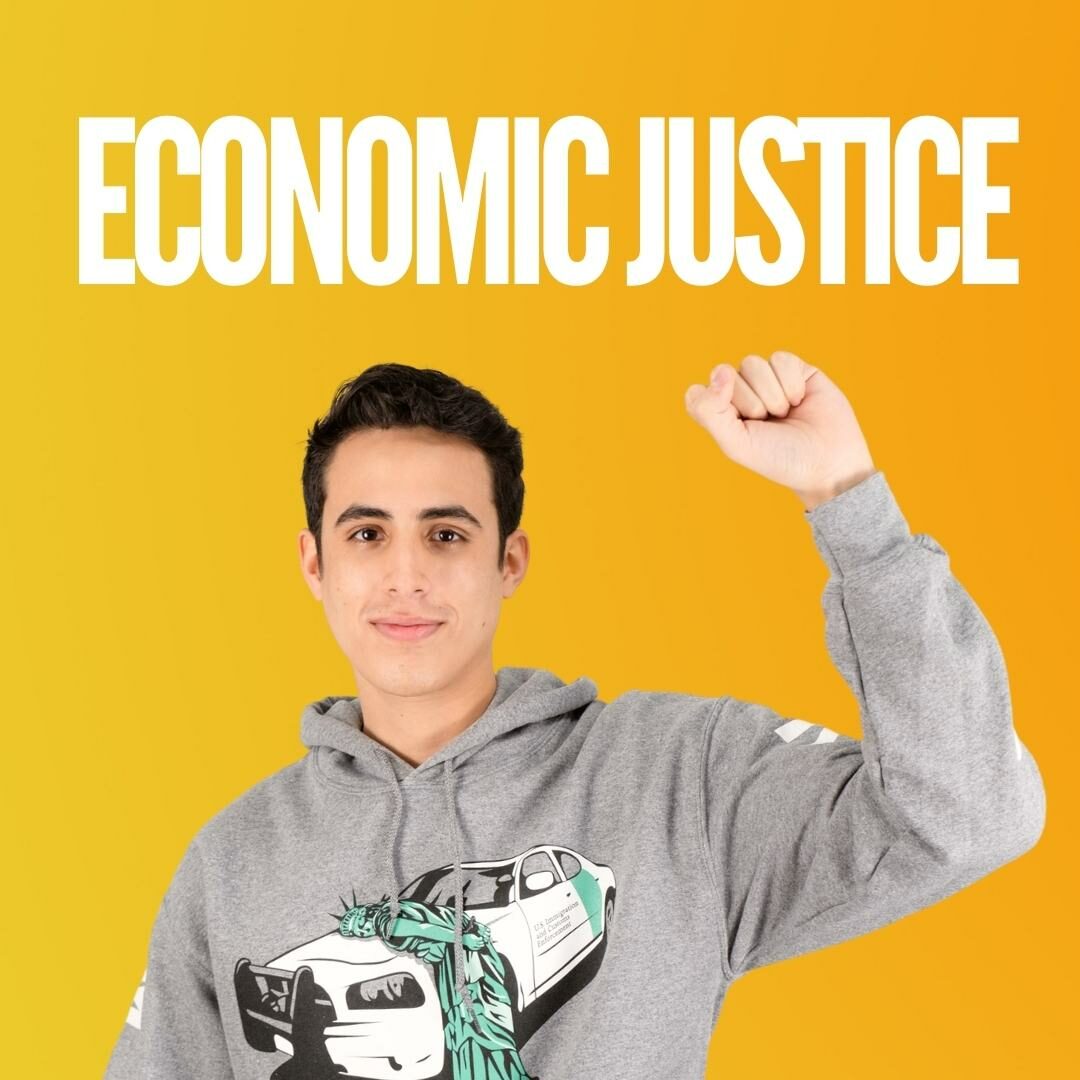1. Seeding Local Progressive Funding
Funding for long-term transformative movements to address concerns like inequality, climate change, civic power and immigration in Nevada – and tied to broader national change – was widely cited as scarce and cyclical. Given the small number of local progressive foundations, it merits re-iterating how impressive it is to understand the infrastructure and depth of base organizers have managed to build with little resources, and important to imagine what significant more investments can help realize. Organizers noted that most of their funding comes from national sources, and one shared, “I don’t have many local foundations I can talk to about this work and instead have to move through national foundations and tables” - which can be a complex, time-demanding process.

2. Advancing Indigenous & Worker-Led Funding Models
Coordination with the Culinary Union and other major, worker-led and more democratic unions like Service Employees International Union (SEIU) can be integral to a funding strategy in Nevada, especially for those newer to the scene and developing pooled mechanisms. As noted above, it is also important to recognize these unions as democratic mechanisms for workers that should not just be supplanted by a 501(c)(3) or 501(c)(4) model.
It is also essential, several organizers noted, to ensure funding for Indigenous movements and tribal infrastructures.
For the sparse local and national civic and campaign-oriented funders operating in Las Vegas and Nevada, organizers shared the challenge of “translating the power building work and base building that leads to shifting structural systems.” Many foundations look to deliverables and policy shifts, or visible social media communications campaigns, rather than to the “level of sophisticated organizing” that matters with one-on-one outreach, research alongside participants, testing data and communications systems, list-building and much more intensive, long-term labor. “
3. Breaking Beyond Election Cycles
Integral to a sustained, comprehensive approach then is what another funder called the need to do “unsexy funding,” and move beyond the kinds of investments in campaigns that are in the news cycle or critical election drives. Instead, as noted above, there is much need for direct investment in the long-term, patient base-building, as well as in the inter-organizational coordination that drives the coalitions vital to changes in the landscape in Las Vegas. This of course can be solutioned with long-term, unrestricted funding, as well as being open to funding organizational collaborative spaces, including formations like the Nevada Immigrant Coalition and the Nevada Housing Justice Alliance.
4. Doing the Research and Educating Each Other
Relatedly, organizations also raised concern with the impetus or desire to build coalitions from funders’ perspectives first, versus supporting organic coalitions on issues like housing that are advancing from the ground up. One cannot simply, as one organizer explained, “drop environmental justice issues on a group that is not involved” in issues like mining. The answer is never for funders to bring people into rooms and say “here is the agenda that I created, go out and do it,” but instead to make sure that “ideas [for new funding and organizing directions] are rooted in community.”
One funder cautioned that as local foundations enter the space of housing, racial justice, immigration, or other interrelated social justice struggles – at the root of many of the questions like supporting the unhoused they seek to address - they must put in time to learn from other funders and do their research. The same holds true for national funders seeking to support Nevada. “We have to teach ourselves – it’s not just talking with constituents,” they noted. For local social justice-oriented funders, another shared, “It’s lonely here,” and spoke to the value of finding collaborative spaces to work and learn with local and national funders simultaneously. As such, more dynamic funder organizing spaces like the Amplify Fund have been a critical opportunity to bring local funders into a more integrated, intersectional framework and offer peer-to-peer learning, while lessening the burden on future grantees who are already hard-stretched.

5. Going from Cyclical to Sustained Civic Power Funds
National funding support is still welcome by many, given the dearth of local progressive foundations, but many operate with caution when it comes to accepting such support. The concern has been with the cyclical nature of such funding and how it pours in at distinct moments. In the months before elections, there is significant support and expectation for Get Out the Vote and voter-registration work, particularly for US Senate and congressional races; then, post-election, the resources disappear, leaving an anemic organizing ecosystem that struggles to fundraise for long-term power-building based in a racial justice framework.
The success of electoral strategies and Nevada’s democratic wins, as noted above, hinge on their larger ecosystem upon which they rely, which include the deep connections and base built by worker-led unions and member-led organizations, as well as coordinating 501(c)(4) groups. Organizers point to the necessity of Integrated Voter Engagement investments that fund year-round work that may be visible during elections, but also ensures the relationships, leadership and accountability for elected officials that makes electoral wins possible and meaningfully translates it into change.
6. Turning to Collaborative Funding
Several organizations shared that – given many of the challenges like education and research outlined above - key models for Las Vegas include successfully-pooled funds towards long-term transformative organizing. The Amplify Fund is one such model. Another is the Esperanza Fund, seeded by Open Society Foundations and housed at the Nevada Community Foundation. Building from an initial $750,000 investment, it was later supported by Amalgamated Foundation’s Families and Workers Fund and smaller public foundations, as well as individual donors. The Fund was meant to provide direct cash assistance to immigrant families left out of COVID-19 federal aid and distributed more than $1 million in funding by round 4 of its distributions. It did so in intense coordination with Make The Road NV, Arriba Las Vegas Worker Center, PLAN and others who were rooted in the community, and as such was able to interrelatedly support other forms of migrant civic engagement and community building.
Las Vegas, and Nevada more broadly, is rife with examples that show a region that has the odds stacked against grassroots, worker, and community power in its concentrated wealth and power in the hands of mining, gaming, real estate, and retail monopolies. Yet worker and community-led movements – to the inclusion of indigenous tribes who have stewarded the land - have made the impossible possible time and again, and advanced an agenda in one of the largest tourist and service sectors in the US and where some of the most drastic housing and environmental justice crises persist.
As one funder puts it, this should be the motivation for funders to organize, innovate and act boldly in moving resources to the critical movements that drive this work: The pandemic should have helped us recognize, others live this struggle and fight for their lives every day here; we should have the courage to do the same and move closely with them and support them in collaboration with each other.